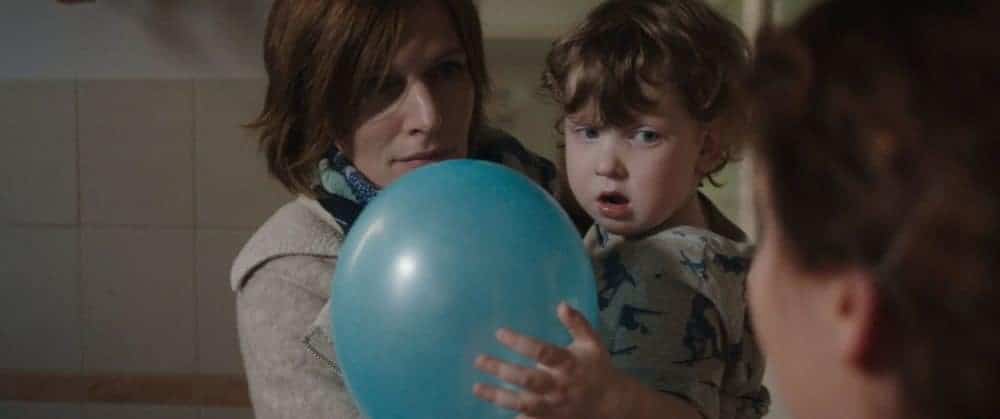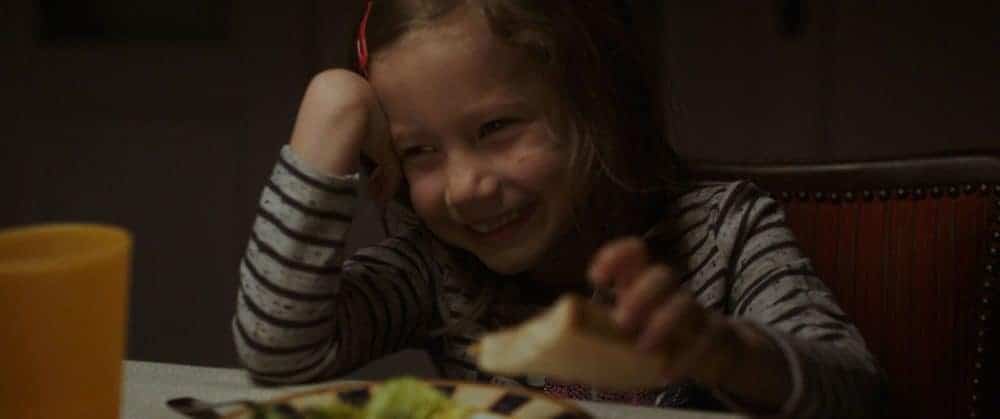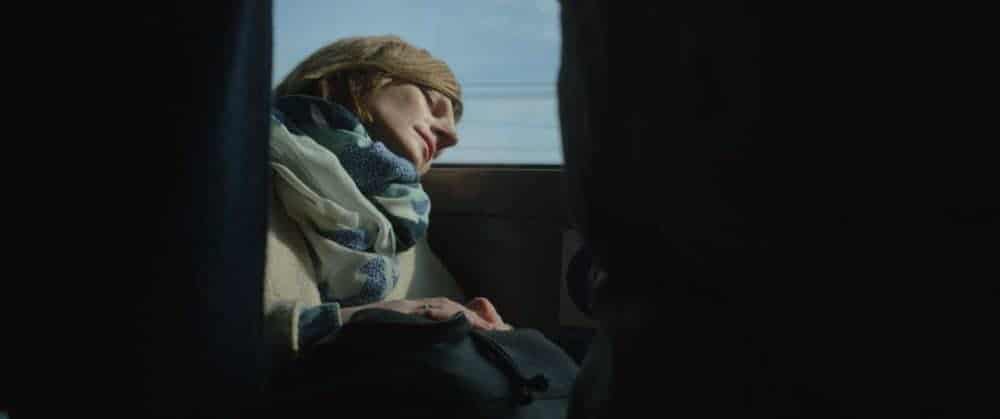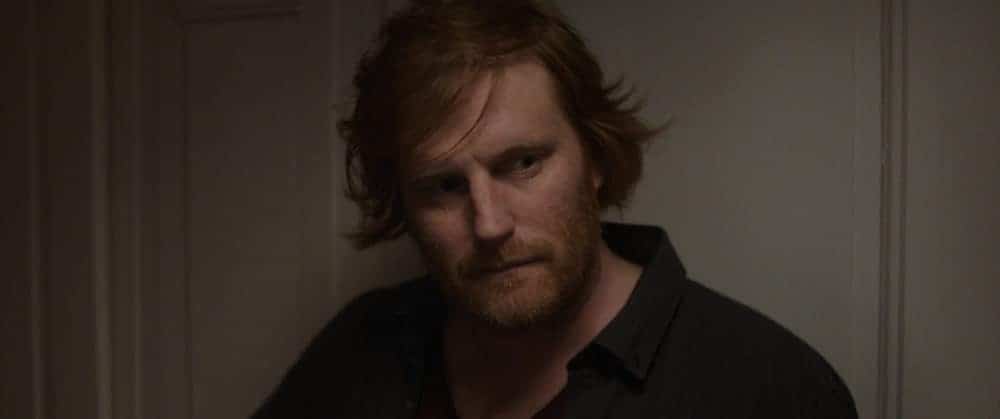Hungarian director Zsófia Szilágyi discusses her impressive feature debut One Day, avoiding cliches while telling a typical story, fighting over the film’s sound design, and working with child actors.

Before making her first feature film, Zsófia Szilágyi worked closely with Ildikó Enyedi, one of Hungary’s most celebrated contemporary filmmakers. As assistant lecturer to Enyedi at the Hungarian Academy of Film and Theatre, then as casting director on Enyedi’s Oscar-nominated On Body and Soul (2017), Szilágyi sharpened the tools that would make One Day a highlight of Cannes, and an impressively self-assured feature debut.
The film tells a banal yet often untold story — that of a mother of three simply trying to hold on. Anna (Zsófia Szamosi) also suspects her husband is cheating on her. This source of anxiety and the usual stress of daily life pile up to an incredibly tense, heartbreaking, and beautiful finale. The very specific angst of the perfectionist stay-at-home mother has rarely been so realistically depicted on screen, or so heartily felt.
Szilágyi talked to us in Cannes about avoiding cliches while telling a typical story, fighting over the film’s sound design, casting the role of the mother, and working with child actors.
Seventh Row (7R): What was the genesis of the project, and why did you choose this topic?
Zsófia Szilágyi: It wasn’t my idea. A childhood friend was writing very detailed letters to me about her days spent taking care of her children. The point of view of the film told in this way comes from this friend, the way she was perceiving herself. My part in this was noticing that there could be a film made from this. I started from there, and I began observing the lives of other people around me, friends and family, who had children, too.

7R: How did you avoid cliches and give the film a sense of lived-in reality?
Zsófia Szilágyi: That’s a very good question, because I don’t know! All the situations in the film are, if not clichéd, then at least rather typical. But it’s very hard to make something that comes so close to clichés. Maybe the key to this question is that I wanted to really go into the details. I didn’t want to make something vague and blurred.
[click_to_tweet tweet=”‘A childhood friend was writing very detailed letters to me about her days spent taking care of her children.'” quote=”‘A childhood friend was writing very detailed letters to me about her days spent taking care of her children.'”]
The notion of time, and how we would show it, was extremely important. In the letters I received, my friend would give me details about her life from minute to minute, from hour to hour. It also depended on having the right lengths and durations for every situation. When the mother dresses her children, for example, that scene can’t be too long. But at the same time, I didn’t want to reduce that moment to a sign, the way it usually is in films, where they cut this banal moment to make it as short as possible. We need to feel that it is happening, not only signal it.

7R: In the film’s sound design, the voices of the characters were very soft and easy to hear, even though the film isn’t a studio or Hollywood production. How did you work on the sound?
Zsófia Szilágyi: On set, there was a sound engineer, Ervin Stark. There was a big fight between me and him, because we were in a hurry, but he fought to have all the sounds he wanted. But in the end, I am actually very thankful for every time he won an argument against me.
[click_to_tweet tweet=”‘The scene of the mother dressing her children can’t be too long. But at the same time, we need to feel that it is happening, not only signal it.'” quote=”‘The scene of the mother dressing her children can’t be too long. But at the same time, we need to feel that it is happening, not only signal it.'”]
In post-production, we really worked a lot, for three months. We cleared up noises… Tamás Beke, the foley artist, also helped at this stage.
7R: How did you decide on the casting of the mother? Even though she’s playing an overwhelmed mother, Zsófia Szamosi is classy, in her fine features and in the way she carries herself.
Zsófia Szilágyi: What you mention is very important. I learned from Ildikó Enyedi, who was my mentor, that 50 percent of being an actor relies on the physical characteristics, the look. The first impression that a face gives you, for example, is very important. After that comes the acting. Because the face and the body of this woman are extremely important in the film, it was crucial to find a really interesting face, one that can be looked at even when nothing major is happening.
Regarding Leó Füredi, the actor who plays the husband, this was actually his first acting role. But he has a real talent for acting.

7R: At the end of the film, after her husband comes home, the mother finally let’s go a little bit. That’s when we realise that, all this time, she really was trying too hard to do everything perfectly. And that gives us more sympathy for the husband.
Zsófia Szilágyi: My desire was to show this woman who is perfectionist. But at the end of the film, she does let go a little bit. Even though the husband makes mistakes, it’s not very easy to judge him. He’s still very sympathetic. He is troubled by this situation, as well. What he is doing is happening with him alone, too. It impacts him, too. Even to him, it’s a surprise.
[click_to_tweet tweet=”‘I learned from Ildikó Enyedi, who was my mentor, that 50 percent of being an actor relies on the physical characteristics, the look.'” quote=”‘I learned from Ildikó Enyedi, who was my mentor, that 50 percent of being an actor relies on the physical characteristics, the look.'”]
7R: How was is to work with children?
Zsófia Szilágyi: They spent time together and became friends from one to three months before the shooting started. We wanted a real relationship between the children to exist before the shoot. So it was very pure and very simple working with them. We could ask them things, and they could ask things, too, very comfortably. The two children were partners, colleagues, and they weren’t at all manipulated. I could talk to the 5-year-old girl, to the 3-year-old boy, to tell them how many more sets there will be, what the scene will be… We never forced them; everything was explained to them. And it worked really well.
Director Kleber Mendonça Filho was particularly insightful about the way he approached sound in his film Aquarius, including how he decided on the film’s soundtrack.
In his film Demons, Québécois filmmaker Philippe Lesage purposefully played the sound of dialogue at a lower level than we’re used to. “I don’t mind if a bus is passing by and we lose a couple of sentences from the dialogue. I think it gives it a certain kind of reality,” he explained.

